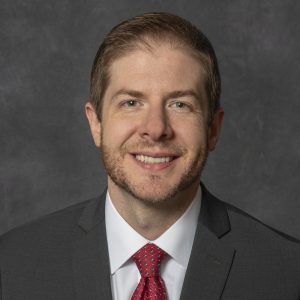Writer: Andrea Teran
 4 min read April 2024 — In Houston, a city known for its dynamic economy and rapid growth, the workforce landscape reveals a multifaceted scene of challenges and opportunities. As a key metropolitan area driving industries such as healthcare, technology, construction, and energy, Houston’s labor market dynamics serve as a crucial indicator of the potential and downsides that urban economies face in the 21st century.
4 min read April 2024 — In Houston, a city known for its dynamic economy and rapid growth, the workforce landscape reveals a multifaceted scene of challenges and opportunities. As a key metropolitan area driving industries such as healthcare, technology, construction, and energy, Houston’s labor market dynamics serve as a crucial indicator of the potential and downsides that urban economies face in the 21st century.
Recent data presents a nuanced picture: Houston’s unemployment rates experienced a minor increase in February 2024, rising from 4.4% to 4.6%. Despite this slight uptick, job growth continues, adding 24,600 jobs that month and pushing total employment beyond the 3.4 million mark.
To address workforce needs, the Texas Legislature’s House Bill 8 allocated $683 million in funding to community colleges across Texas. This legislation introduced an outcomes-based funding model for higher education, rewarding institutions for awarding degrees, certificates, and other credentials, especially in high-demand fields. Community colleges in the Houston area, including Lone Star College, San Jacinto College, Lee College, and Houston Community College, are poised to benefit from this model.
The engagement of both local and major corporations in workforce development initiatives underscores the collective effort to prepare a skilled workforce in Houston. Notably, Shell Energy and bp America’s support for Prairie View A&M University, through funding an energy trading program, aims to diversify the sector and provide students with comprehensive academic and practical experience.
Invest: caught up with leaders in economic development, healthcare, and professional services to discuss their experiences with labor and workforce issues in the region.
 Brian Freedman, President, Bay Area Houston Economic Partnership
Brian Freedman, President, Bay Area Houston Economic Partnership
Workforce challenges are everywhere, especially when it comes to finding qualified, capable people. What sets us apart in Houston is the manageable cost of living where people can afford to buy a nice house with a lot of great opportunities for employment. Companies are looking for a certain type of workforce and are looking for help with that. The size and demographics of the region are an advantage in this regard just because of the sheer scale. There are plenty of talented people here but that isn’t enough. I can’t say enough good things about our school districts, which work hand in hand with industry to identify at the K-12 level to make sure students are learning skills ready for the workforce. Our community colleges have also been right there for workforce training across all our major industries, with certifications and training programs to get people ready from day one. It’s also very affordable and won’t create any headwinds in terms of debt that could obstruct their career path. The University of Houston Clear Lake and Texas A&M at Galveston are producing highly qualified graduates as well, in industries from aerospace to maritime. We want to create more opportunities for the people who are already here, and we have an academic community that is ready to support that.
 Esmaeil Porsa, President & CEO, Harris Health System
Esmaeil Porsa, President & CEO, Harris Health System
We’re proactively addressing the future needs for healthcare professionals by expanding our capacities and workforce. Recognizing the necessity for more doctors, nurses, and medical staff, we’ve initiated programs to cultivate our own talent pool. One example is our culinary program aimed at high-school graduates from economically disadvantaged areas in Houston, such as parts of Third Ward and Fifth Ward. We offer these graduates opportunities to enter the healthcare field, starting with basic roles and progressing to more specialized positions like medical assistants. We finance their education and training, providing a pathway to nursing and other healthcare professions. This approach not only helps individuals advance their careers but also uplifts entire communities economically. Additionally, we’ve partnered with Houston Community College to create an apprenticeship program, further expanding our capacity to train future healthcare technicians and nurses. This initiative is about building a sustainable pipeline of healthcare professionals and making a significant impact on community health and well-being.
 David Salters, Member, Warren Averett, LLC
David Salters, Member, Warren Averett, LLC
Upskilling and reskilling employees who prove their worth in the company is a strategy that has gained strength. These employees are familiar with the company and understand both its culture and the expectations. We are seeing smart employers transition good employees, offer them training, and give them new opportunities. Smarter companies are realizing good talent is hard to find and hard to retain, so they are upskilling and reskilling to have longer relationships, more employee fulfillment and more gratifying careers. Even if that means compensating people higher over time, it is still more cost-effective than going out to the market for someone who might not be properly trained and testing if they might be a good cultural fit. Our labor shortage is a long-term problem. The recession is not going to help employers regain their leverage to recruit and retain better. They need to focus on upskilling and reskilling their workforce. The future is in immigration and automation, but there are barriers for both. The most effective means to grow our workforce is to transfer skills from one set of employees to another. That is where the leading companies will get ahead of the market.
 Janette Marx, CEO, Airswift
Janette Marx, CEO, Airswift
One of the biggest challenges, not just in the Houston economy but globally, is the talent shortage, particularly in STEM fields. At Airswift, we specialize in science, technology, engineering, and mathematics skill sets, which are crucial across numerous industries, including energy, IT and infrastructure. Despite our focus on these areas, the acute shortage of skilled professionals persists, making it vital to attract, train, and retain the right talent for our future. The Great Resignation has subsided somewhat as companies adapt and shift. People who insist on remote work only limit their options and abilities. A notable accomplishment for Airswift has been recognizing and leveraging the transferable skills of our candidates. This strategy has allowed us to move people from traditional to alternative energy sectors, as well as into chemicals and infrastructure projects. Both hiring managers and candidates are more open to this approach, which expands the candidate pool and showcases our ability to navigate careers across different sectors of the energy industry and beyond.
For more information visit:

